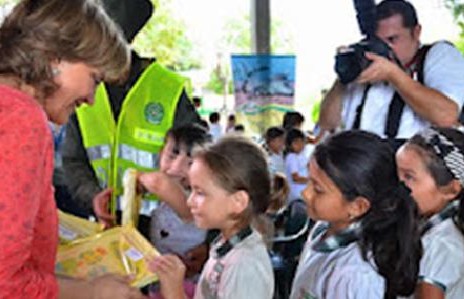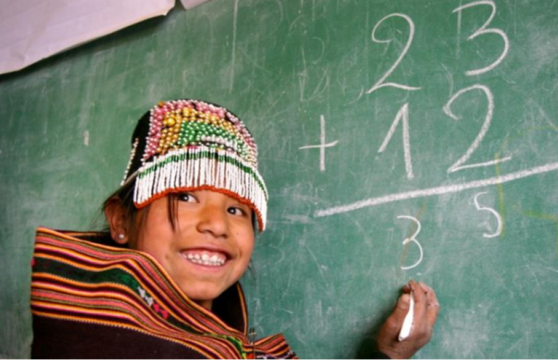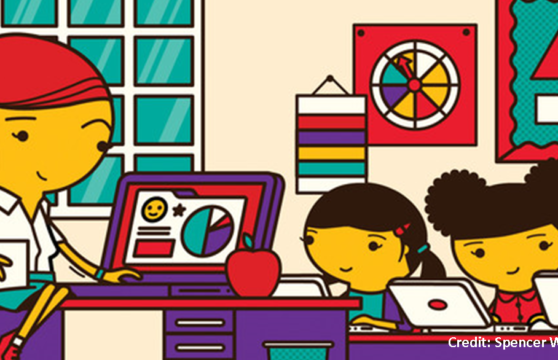
“Todos a Aprender”: Colombia Puts Learning at the Center of its Education Policy
What Columbia is doing to improve its education quality.
This post is also available in: Spanish
We are pleased to share with you an article written by our friends from OREALC/UNESCO Santiago on learning goals and the global agenda. It follows up on Ariel Fiszbein and Eduardo Vélez Bustillo’s recent blog post on the same subject.
The recent launch of the 2013-2014 UNESCO Global Monitoring Report (GMR), which tracks worldwide progress in achieving Education for All (EFA), once more reminds us of the central importance of quality education for international development.
Public health, socio-economic development, environmental sustainability, peace–almost all major challenges facing the planet seem to critically depend on education. It is, therefore, crucial that, now that the Millennium Development Goals (MDGs) are about to expire in 2015, and discussions on new international development goals are underway, education is at the heart of these discussions.
To be clear from the outset: education has always been part of the MDGs. It was enshrined, mainly, in Goal 2, on universal access to primary education, but also in Goal 3, on gender equity. These are areas in which, since 2000, significant progress has been attained across the world – a success achieved with great efforts from citizens, NGOs, national authorities and international organisations. What the MDGs did not focus on, however, was learning, whereas, supposedly, this is what education is about.
It is, therefore, not a surprise that there has been considerable debate on how to frame a worldwide Learning Development Goal. So far, the work on a global indicator of learning has focused on defining, through broad consultations, the necessary educational objectives (or ‘learning outcomes’) for the future. However, in addition to discussing what levels of learning are acceptable, at different developmental stages, these debates have also looked into the question: how can we know whether we are achieving our Goal? Which indicator(s) can we use to assess this?
At the UNESCO Regional Bureau for Education in Latin America and the Caribbean, based in Santiago de Chile, we agree that a global indicator of learning is of crucial importance. However, in our view, the work on such an indicator should, preferably, not take place ‘top – down’. International organisations should seek to avoid imposing on countries what their citizens should learn and, thus, assess, as implied in so-called ‘competency-based tests’. Instead, they should attempt to define the desired learning objectives ‘bottom up’, through what countries decided to incorporate in their curricula. The achievement of these outcomes is what the global indicator of learning should help to monitor and evaluate.
There is a great advantage in shaping the learning indicator on the basis of the countries’ curricula, instead of basing it on centrally defined objectives: there are international organisations, which, among themselves, have over half of the world’s curricula mapped. These include the International Association for the Evaluation of Educational Achievement (IEA); the Southern and Eastern African Consortium for Monitoring Education Quality (SACMEQ); the Programme d’Analyse des Systèmes Educatifs de la CONFEMEN (PASEC); and the Latin-American Laboratory for the Assessment of the Quality of Education (LLECE).
What is more, among these organisations, we already have the infrastructure to assess the achievement of these learning outcomes in place. The mentioned organisations undertake periodic assessments of achievement of learning objectives, on the basis of nationally representative samples of learners in primary education, in mathematics, language and, sometimes, science education. The data that these assessments yield give us a good impression of what average level of learning has been achieved in the countries that participate in these projects.
Our proposal for a global learning indicator is this: let us build on what already is in place, and take literacy (language proficiency) and numeracy (mathematics proficiency) in primary education as basic indicators for achievement of learning, based on the curricula of the countries we have mapped, and setting a standard along the way. To this end, let us create a broad alliance between the international assessment organisations, and link our assessments. Then, gradually, let us extend our coverage to all countries. UNESCO’s worldwide network can help with this. In the meantime, we can dream of a broader, more holistic set of learning indicators, which can be in place in around 15 – 20 years from now.
It is our firm belief that, with some seed funding from development partners, a global indicator of learning can be a tangible reality in the very near future. This, in turn, will put learning at the heart of the international development agenda, to the benefit of all.
* Moritz Bilagher is Regional Coordinator Evaluation and Trends Analysis / LLECE, Mauricio Holz is Technical Assistant / LLECE, and Juan Luis Iturria is Assistant Programme Specialist OREALC / UNESCO Santiago
What Columbia is doing to improve its education quality.
A report identifies seven important learning domains that all children should master to succeed in life.
Economist article discusses the advances in education technology as well as the associated changes and challenges.

